The Death of Corporate Networking Events (And Why That's a Good Thing)
2023-12-09
·
⏱︎ 12 min read·
Let's talk about the elephant in the room: corporate networking events are dead. Not technically dead – they still shamble on like zombies in poorly-fitted suits, haunting hotel conference rooms and chamber of scommerce spaces across America. But spiritually? They've been six feet under for as long as I can remember.
Over a year ago, I found myself staring into the void of an empty coffee shop in downtown Grand Rapids, an hour before our first self-organized networking event. The panic was real, but so was the conviction: we had to build something better than another "synergistic networking opportunity" where success is measured in business cards collected and LinkedIn connections secured.
Here's the truth that corporate HR doesn't want you to hear: the best networking happens when you stop trying to network.
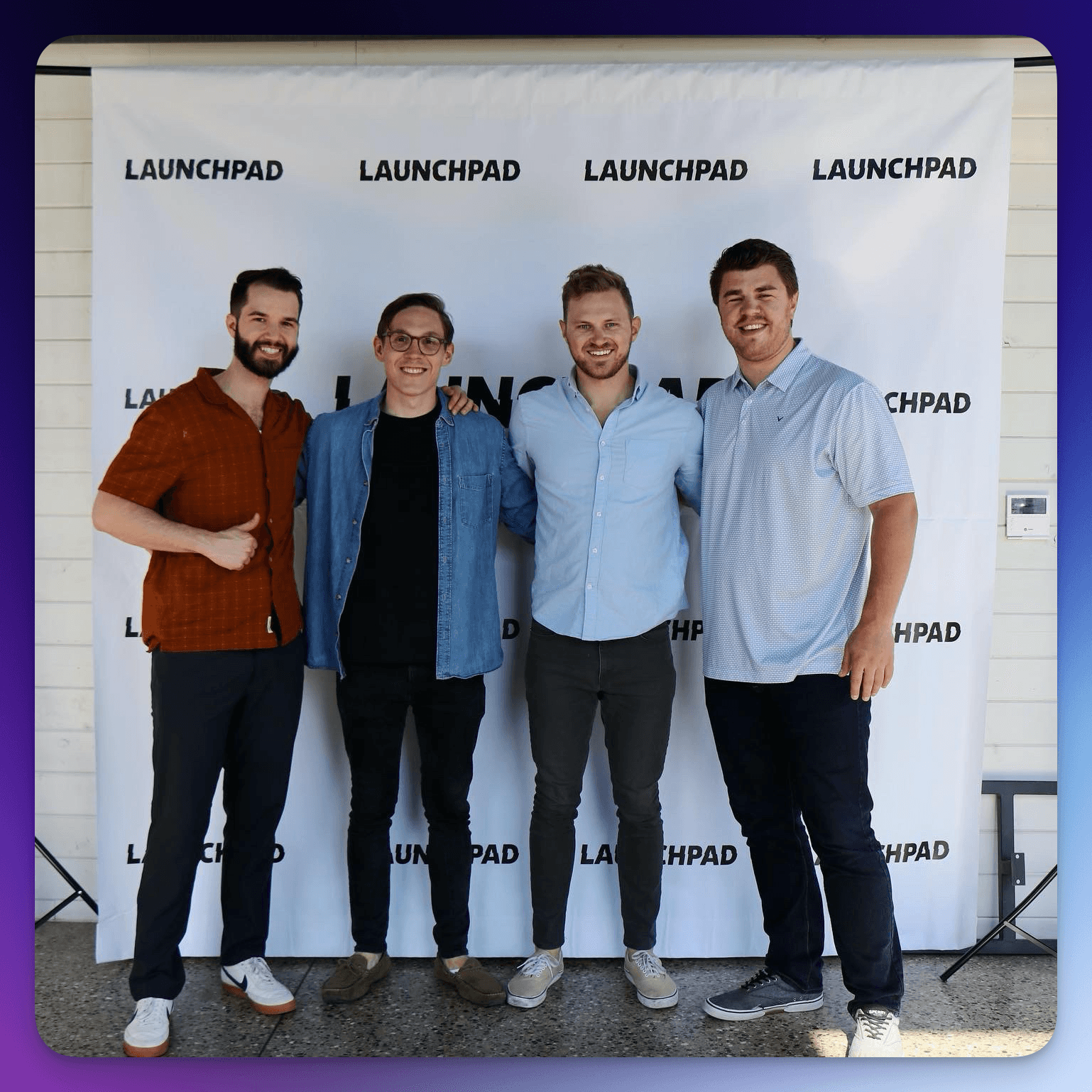
The Corporate Networking Industrial Complex
Let's dissect why traditional networking events are a special circle of professional hell. Picture this: You're standing in a room where everyone is trying to speed-date their way to their next career move. Whether free or fee-based, these events often feel like a waste of precious time. The appetizers are mediocre, the conversations are shallow, and everyone's eyes are darting around looking for someone more "important" to talk to. It's not networking; it's professional theater.
The fundamental flaw? These events optimize for quantity over quality, treating human connection like a metrics-driven KPI. "Congratulations, you've collected 15 business cards! Here's your gold star in professional development."
The Revolution Will Not Be LinkedIn-Optimized
Here's what we've learned from running our own events: when you strip away the corporate pretense, something magical happens. People start acting like, well, people.
Our rules were simple:
- No business cards (your LinkedIn QR code works fine, let's not kill trees)
- No elevator pitches (if you can't naturally work what you do into a conversation, you're trying too hard)
- No name tags with job titles (you're more than your LinkedIn headline)
The result? Conversations that actually matter. People sharing their wild ideas, their failures, their actual interests beyond their job description. You know, the stuff that makes us human.
The Case for Self-Organized Communities
Here's where I'm going to ruffle some corporate feathers: you don't need official channels to build meaningful professional relationships. In fact, they're often obstacles.
When we started organizing our own events, we discovered something interesting: people are hungry for authenticity. They're tired of the script. They want to meet others who are doing interesting things, but they want to do it on their own terms.
The beauty of self-organized events is that they're optimized for the only metric that matters: genuine connection. Here's the truth: you don't build community by randomly bumping into people in a room. Real community forms around mutual purpose and shared interests. When you gather people who genuinely care about the same things, whether it's AI ethics or artisanal coffee, the connections form naturally. No quarterly networking quotas to hit, no mandatory fun, no corporate overlords to please.
The New Rules of Engagement
If you're thinking about creating your own community events (and you should), here's what actually matters:
-
Curate Aggressively Not everyone needs to be invited to everything. That's not elitism; it's good party planning. Mix people who will genuinely find each other interesting and who want to be there. The biggest way that we did this was by being very intentional in our messaging. We let people know that it was going to be casual - dress casual, be friendly/normal with people. Ultimately, if this was a place you would not bring your authentic self, and instead spout off LinkedIn nonsense, it wasn't for you. We still worked hard on inclusivity of gender/race through intentionality, our guiding light was did you actually want to be here?
-
Create Shared Experiences Instead of standing around making small talk, do something together. We've had coffeeshop events, breweries, a baseball game, and made sure to introduce people we knew had to meet.
-
Build in White Space The best conversations happen in the margins. Don't over-program. Let serendipity do its thing. We had set an agenda (just because expectation setting is important - people WANT to know when to leave) but didn't have rigid activities. Even then, we worked really hard to not take ourselves too seriously.

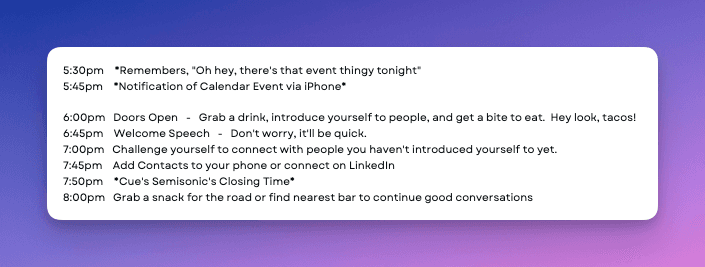
The Technical Stuff (Because Someone Will Ask)
Yes, you need some infrastructure, but keep it simple:
- Lu.ma for event pages and RSVPs. You really only need something that allows people to register, and automatically sends them reminders. Having said that, if you're throwing your first event, prepare to send initial invites.
- Your phone's camera for content. We actually found a local photographer that recorded the session and it was fairly insignificant in cost compared to the value of having photos for future events.
- Google Forms for feedback
That's it. Spend your energy on people, not platforms.
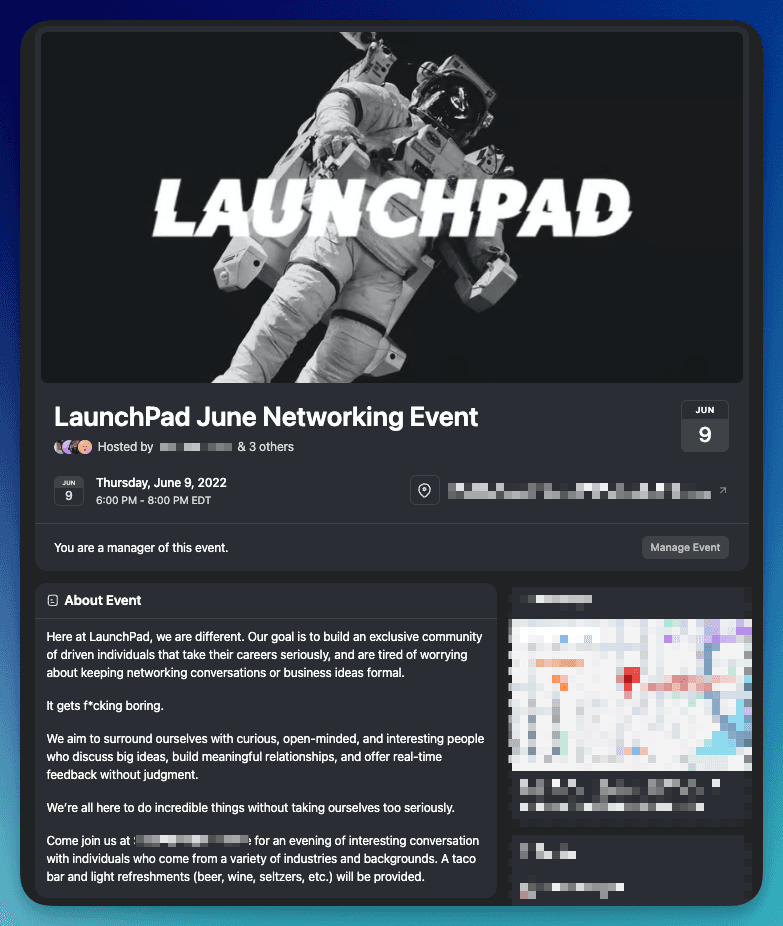
The Real ROI
Here's the dirty secret about networking: the best opportunities come from the connections you make when you're not trying to make connections. They come from the random conversations, the shared laughs, the moments when you forget you're supposed to be "networking."
Our first event in that coffee shop? It wasn't perfect. The timing was off, someone spilled on the floor, a ton of people backed out last minute and yes, there were moments of awkward silence. But people made real connections. They started projects together. They became friends.
We haven't hosted one in a little while, and I still occasionally run into someone that goes "hey, when are you doing LaunchPad again?"
It's A Lot of Work
Let's be transparent about what "organizing your own event" actually means. It's not just picking a date and sending some emails. For our first event, we:
- Spent time convincing a coffee shop owner to rent us the space (shout out to the former owner who rented us the space and trusted me with the keys)
- Hustled for food sponsorship (my landlord saved us by offering to cater from his restaurant - networking in action!)
- Sent countless invites, follow-ups, and "no really, you should come" messages
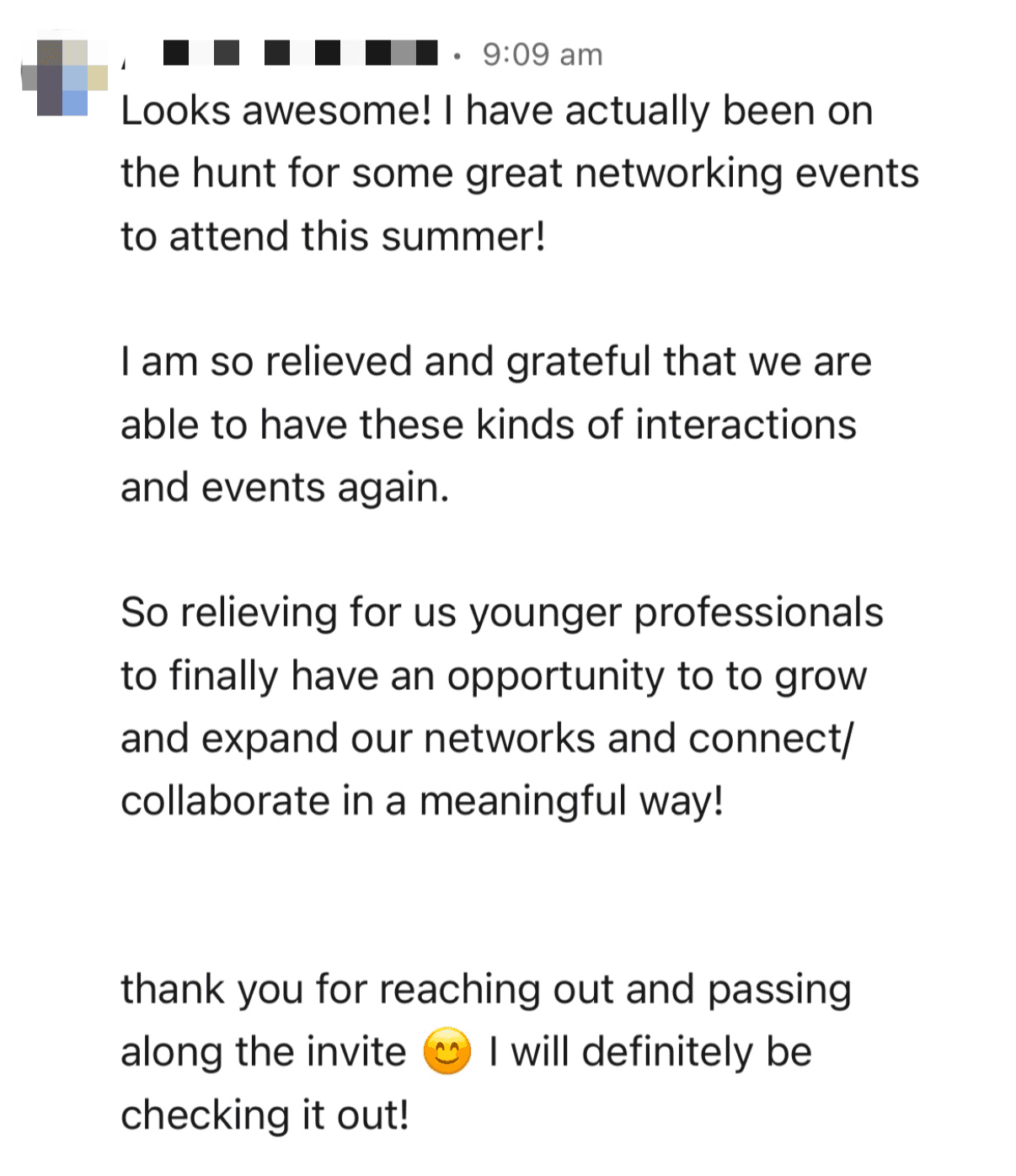
- Met up for beers after work for weeks to plan ONE event
- Got overexcited and ordered a banner (which we definitely didn't need, but hey, go big or go home)
- And once more, COUNTLESS FOLLOW UP
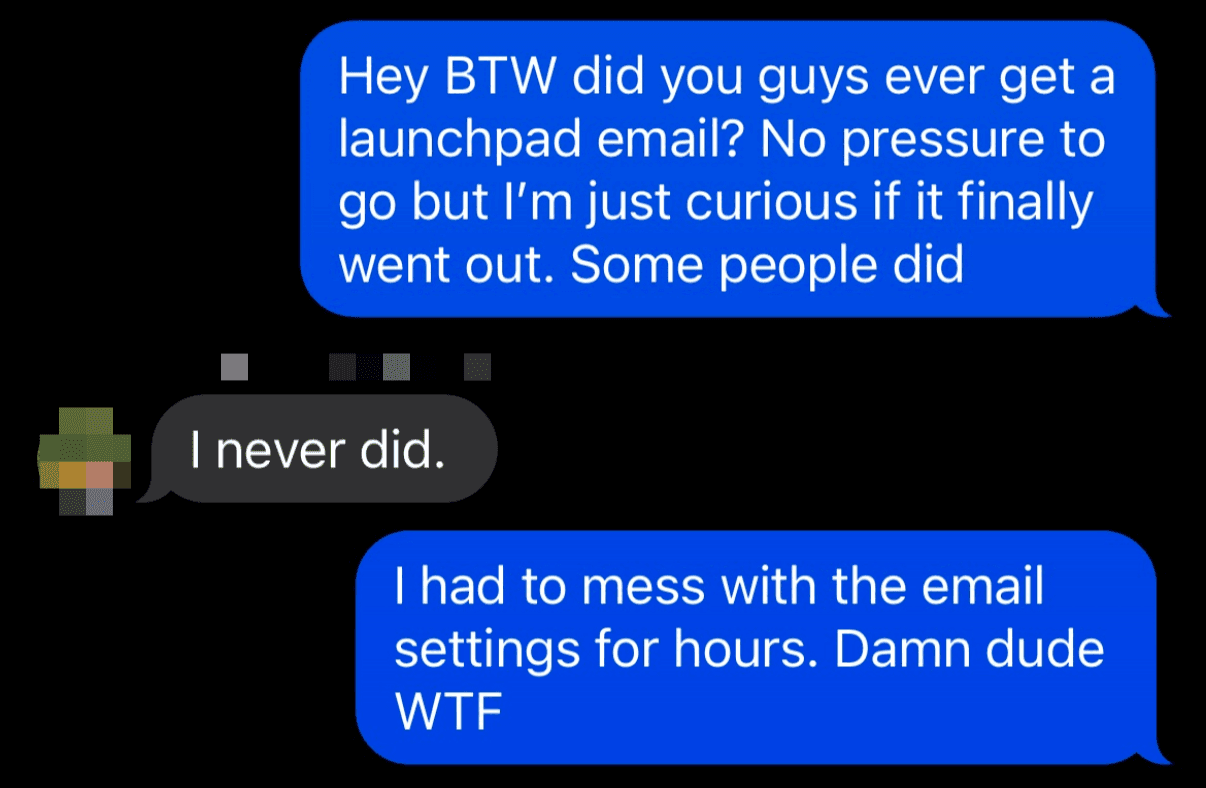
Every hour spent planning was an hour after our day jobs. Every detail required decisions, from the invitation wording to the room layout. And despite all the planning, things still went wrong.
But here's the thing: that effort is exactly what made it special. When you pour that much intention into creating something, people feel it. They show up differently. They engage differently. And somehow, all those late-night planning sessions over beer turned into something people still ask about today.
I'll never forget how fun it was when we all met at the local bar after the event, a few from the event came, and we all couldn't stop talking about how much fun we had and the cool people that we met.
The Future Is Human
As AI continues to eat the world and remote work becomes the norm, these authentic human connections become more valuable, not less. The future of networking isn't in sterile corporate events or AI-powered matching algorithms. It's in small, intentional gatherings where people can be themselves.
When you get into a room full of people who share your interests and passions, something extraordinary happens. You don't just find your next job opportunity or potential business partner – though that often happens naturally. You find your people. Future collaborators. Lifelong friends. The kinds of connections that transcend professional networking and become part of the fabric of your life.
So here's my challenge to you: Stop waiting for permission. Stop attending events you hate. Create the spaces you wish existed. Gather your people. The worst that can happen is you'll spend an evening with interesting humans. The best? You might just build something that matters.
And if you're still clutching your stack of business cards, wondering how you'll ever network without a corporate sponsor – good. It's time to let go of the old playbook. The future of professional connection is human, messy, and infinitely more interesting than any "networking mixer" could ever be.